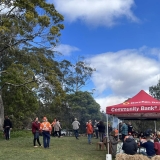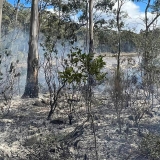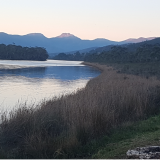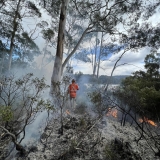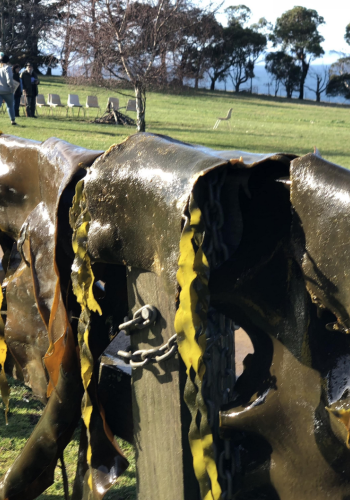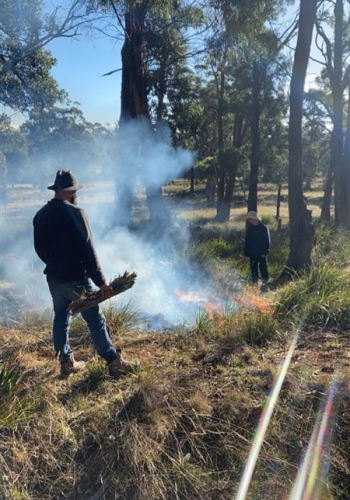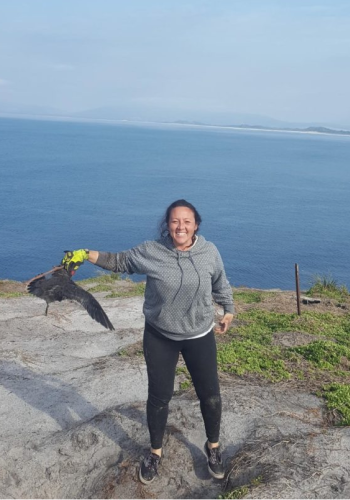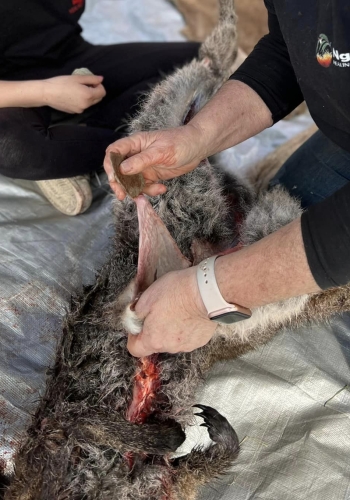Working on Country
The health of our people and our Country are connected. By combining traditional practices with modern methods, we care for our environment. Grounded in Aboriginal knowledges, these practices empower us to nurture the land. Techniques like fire-stick farming, hunting, gathering, and resource management benefit ecosystems and strengthen our community's connection to the land and sea.
Our Working on Country Rangers
Our Aboriginal Rangers are committed to nurturing and protecting our land, sea, waterways and our cultural landscape. We focus on a range of vital areas that contribute to the health and sustainability of our environment:
- Biosecurity: Safeguarding our ecosystems from harmful pests and diseases.
- Community Engagement: Building strong relationships and partnerships.
- Cultural and Natural Heritage Management: Preserving the rich history and natural wonders of our region.
- Cultural Tourism (COMING SOON): Promoting authentic experiences that celebrate our unique cultures and practices.
- Fire Management: Implementing fire prevention strategies to maintain healthy landscapes.
- Freshwater Management: Protecting and enhancing our freshwater resources for future generations.
- Marine and Migratory Species: Conserving marine life and their habitats, ensuring biodiversity thrives.
- Other Terrestrial Species: Supporting wildlife conservation efforts for land-based species.
- Sea Country Management: Caring for our coastal and marine environments.
- Soil and Vegetation Management: Ensuring the health of our soils and plant life.
- Threatened Species Conservation: Taking action to protect endangered species and their habitats.
- Visitor Management: Ensuring safe access to learning spaces that focus on our rich history and culture.
If you would like to work with our Team please email land@setac.org.au.
Cultural Burning
Our landscape is naturally designed to burn and regenerate, making it one of the most fire-prone regions on Earth. While bushfires can cause significant loss of life and property damage, fire is also essential for the continent's ecological balance.
To help manage these challenges, you can engage our Working on Country team. They offer services to reduce fire hazards like biomass reduction and cool burning, enhance native seed banks, protect habitats for native and threatened species, and create fire-retardant gardens.
Biomass is organic material from living things, like plants and animals. Common types of biomass include fallen trees, bark, plants, wood, and waste. Biomass can be a fire hazard because it can easily catch fire and may self-heat, collect dust, or ignite on its own.
Cool burning is a controlled burning method that uses lower heat than wildfires or large fuel reduction burns. This technique clears undergrowth while protecting tree canopies and preserving seeds. Only the undergrowth burns, which keeps the canopy safe and supports ecological health.
Ngune Nire (FIRE GOOD)
Our Team of Fire Practitioners work with local people and organisations to:
- Engage our Community in cultural burning activities
- Provide the broader community with education on traditional fire and land management practices
- Develop and deliver Fire Management Plans, with individuals, groups, local and State Government
- Reduce biomass with cool burning
Nire Lowanna (FIRE WOMEN)
This project engages Aboriginal women in Tasmania to revive cultural burning practices. It aims to enhance land management, strengthen community ties, and promote biodiversity while honoring cultural heritage in Tasmania’s landscapes.

